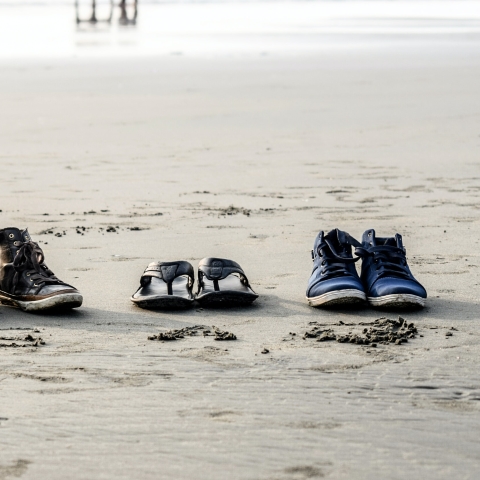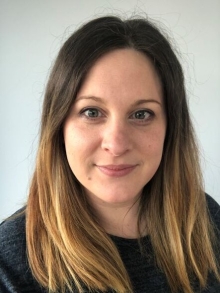

Explore our research in the area of probation, prison and penology
Building understanding of the role of punishment and how this links with processes of justice and rehabilitation.
Prisons and the probation services deal with some of the most excluded members of society, and research is needed to challenge the assumptions of the justice system and to promote change through good quality research and scholarly activity.
The focus of our interdisciplinary research is the theory and practices of punishment and rehabilitation, and the key agencies and professional groupings involved therein. The University of Portsmouth is a key provider of professional qualifications to probation officers in England and Wales through the provision of a research-informed curriculum.
Our group members work with a range of agencies that have involvement with the criminal justice system, nationally and internationally, to develop knowledge, expertise and ethical practices.
Our research and knowledge transfer activities contribute to the ways in which the institutions of criminal justice respond to the problems of crime, punishment and rehabilitation. Key issues include:
- the harms that justice systems perpetuate through harsh punishments thus locking in reoffending
- the knowledge, skills and personal qualities required by practitioners to bring about positive outcomes for victims, communities and criminals
- understanding the ways in which organisations work together to ensure rehabilitation and public protection.
Current projects and research impact
Michelle McDermott, Laura Haggar and Jennifer Grant are engaged in the development of an edited book linking theory to practice for probation officers, with the capacity for reflection in and on action being seen as a core skill.
Dr Aaron Pycroft is currently focusing on the understanding of forgiveness within the processes of justice, and questions why punishment is a default position within those processes. In developing the concept of criminology as peacemaking, he is working with academics and practitioners in the UK and USA to explore the relationships between criminology, theology, and philosophy and the ways in which they underpin the practices of community and restorative justice. In developing this work Jasmine Wood as been awarded a PhD bursary to explore the co-production of forgiveness in community Justice (supervised by Aaron Pycroft) and both are working in partnership with Pushing Change a peer recovery organisation in Portsmouth.
Dr Aaron Pycroft and Dr Karl Nunkoosing and are working with the Apple Tree Community in developing a peacemaking approach to the problem of adults with multiple and profound learning disabilities who are trapped in the adult training unit system, psychiatric hospitals and prisons due to a lack of community resources.
Professor Francis Pakes’ ethnographic research focuses on comparative criminal justice and considers why arrangements are different in different places and what we can learn from each other. He has written about the nature of prisons in Norway, Iceland and the Netherlands.
Dr Dennis Gough’s work has focused on the role of the voluntary sector, peer mentoring and multi-agency working within the delivery of community justice.
Megan Thomas is working with the University of Greenwich and University of Portsmouth's School of Architecture on trauma-informed practice in the design and delivery of services for women within the criminal justice system.
Dr Adrian Needs research interests include the role of life events as precursors to homicide and processes involved in personal change. He’s involved in the area of therapeutic communities and improving interpersonal relations in custodial settings as a necessary part of the rehabilitative process more generally. Recent research has encompassed the problems of former military personnel in prisons and the problems that veterans can face in making the transition from military to civilian life.
Dr Dominic Pearson researches community justice and ‘what works’ in reducing re-offending, rehabilitative Custodial Environments and high-risk Offender Management.
Recent research outputs
Pycroft, A., and Bartollas., C. (2022). Redemptive Criminology. Bristol. Bristol University Press
Christen-Schneider, C. and Pycroft, A. (2021). An Exploration of Trauma-Informed Practices in Restorative Justice: A Phenomenological Study. The International Journal of Restorative Justice. Online first https://www.elevenjournals.com/tijdschrift/TIJRJ/2021/Online%20first/IJRJ-D-20-00019
Maynard, E., Pycroft, A., & Spiers, J. (2021). “They say ‘yes, I’m doing it…. and I’m fine’”: the lived experience of supporting teenagers who misuse drugs. Journal of Social Work Practice, 35(2), 143-157.
Button, M., Gough, D., Shepherd, D., & Blackbourn, D. (2020). White collar criminals’ experience of imprisonment in England and Wales: revisiting the ‘special sensitivity’ debate. Deviant Behavior, 41(12), 1585-1600.
Boone, M., Pakes, F., & van Wingerden, S. (2020). Explaining the collapse of the prison population in the Netherlands: Testing the theories. European journal of criminology, 1477370819896220.
Pakes, F. (2020). Old-fashioned Nordic penal exceptionalism: the case of Iceland’s open prisons. Nordic Journal of Criminology, 21(2), 113-128.
Pycroft, A., & Gough, D. (Eds.). (2019). Multi-Agency Working in Criminal Justice 2e: Theory, Policy and Practice. Policy Press.
Partnerships and collaborations
We work in close collaboration with charities and government departments to deliver research. For example, we have worked with the Ministry of Justice since 2003 to provide qualifying awards for probation officers — in that time over 2,000 students have qualified as probation officers from the University of Portsmouth.
Our other research partnerships include:
- Apple Tree Community
- Corrymeela Community
- Criminal Justice Alliance
- Forgiveness Project
- Police Foundation
- Prison Service
- Probation Service
- Pushing Change
- Restorative Justice Council
- User Voice
Researchers
Explore our research
School of Criminology and Criminal Justice
Read more about the School of Criminology and Criminal Justice, and explore the teaching and research activities that take place within it.

Collaboration of Forensic Interviewing Group
The Collaboration examines the best ways to elicit reliable and fulsome information from interviewees in a trauma-informed way and to ensure informed decision-making.

Cybercrime and Cybersecurity Group
We're researching how crime takes place using technology, such as cyber fraud, hacking, online abuse, and its impact on individuals and society.

Economic Crime Research Group
We're researching the scale, impact and cost of economic crimes — such as fraud, corruption and money laundering.

Forensic Science Group
The forensic science research group at the University of Portsmouth is using science to identify, reconstruct and inform how crime is investigated.

Missing Persons Group
We're researching patterns of behaviour that may precede a person going missing and working to improve how cases are handled.

Policing Research Group
We're working in collaboration with local, national and international police organisations to research the social, economic and political context in which policing operates.

Victimology and Ecological Justice Group
We're researching victims and victimisation, inequality, domestic and online abuse, ecological justice, wildlife crime and climate change.




